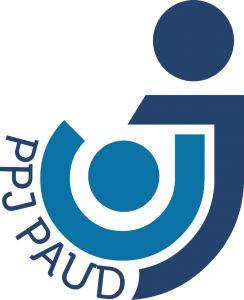MANAJEMEN KURIKULUM ANAK USIA DINI DALAM MENUMBUHKAN KARAKTER MANDIRI SISWA
DOI:
https://doi.org/10.30736/jce.v6i1.910Keywords:
Manajemen, Kurikulum, Karakter Mandiri,Abstract
Early childhood education is very important because the potential for intelligence and basic behavior of children is vulnerable at this age, the importance of this age is often referred to as the golden age. The researcher concludes that the child's development at the next stage is the child's productivity to develop according to stimulation, guidance, assistance and treatment in accordance with the level of developmental growth.Researchers know the problems and get accurate data, researchers use the method of observation (field observations), interviews or interviews and documentation. By using qualitative descriptive analysis techniques. The results of the research in curriculum management are that management functions are applied, including the curriculum management planning process that follows the Indonesian Early Childhood Education Association (HIMPAUDI). Curriculum planning is carried out with the preparation of teaching and learning process materials. The implementation of the curriculum is carried out without any necessity, but rather on direction so that students can have an independent character. The supervision and evaluation of this curriculum consists of several stages, namely: measuring the implementation of the curriculum, measuring the implementation of real activities and analyzing errors or deficiencies that exist during carrying out the curriculum, through meetings once a semester with HIMPAUDI.Inhibiting factors in curriculum managementearly childhood in improving the independent character of students, namely, students still want to be close to their parents when they are at school. Supporting factors in curriculum management improve independent character, namely students playing while learning with learning media at school and from the factor of their parents who also provide enthusiasm in the learning process.References
Dimyanti, Mahmud. (1990) Psikologi Pendidikan Suatu Pendekatan Terapan. Jogjakarta: BPFE.
Hamalik, Oemar. (2017) Manajemen Pengembangan Kurikulum. Bandung: Remaja Rosdakarya, 2017..
Minarti, Sri . (2011) Manajemen Sekolah: Mengelola Lembaga Pendidikan Secara Mandiri .Jogjakarta: Ar-Ruzz Media.
Nawafilaty, T. (2018). Pendidikan Sekx pada Anak Usia Dini Ditinjau dalam Prespektif Pendidikan Agama Islam. Journal of Childhood Education, 2(1), 19-33.
Rusman, (2012)Manajemen Kurikulum. Jakarta: Pt Raja Grafindo Persada.
S Margono. (2010) Metode Penelitian Manajemen. Jakarta: Rineka Cipta.
Salina, dkk. Faktor-faktor penyebab anak tidak mandiri pada usia 5-6 tahun di Raudhatul athfal babussalam. Jurnal pendidikan dan khatulistiwa. Vol 3 (6) 2014.
Undang-Undang Republik Indonesia Nomor 20 Tahun 2003 Tentang Sistem Pendidikan Nasional Pasal 1 Ayat 1.
Wibowo, Agus. (2012) Pendidikan Karakter: Strategi Membangun Karakter Bangsa Berkeadaban, Yogyakarta: Pustaka Pelajar
Yamin, Moh. (2009) Manajemen Mutu Kurikulum Pendidikan, Yogyakarta: Diva Press, 2009.
Downloads
Additional Files
Published
How to Cite
Issue
Section
License
Please find the rights and licenses in JCE (Journal of Childhood Education). By submitting the article/manuscript of the article, the author(s) agree with this policy. No specific document sign-off is required.
1. License
Use of articles will be governed by the Creative Commons Attribution - ShareAlike license as currently displayed on Creative Commons Attribution-ShareAlike 4.0 International License.
2. Author(s)' Warranties
The author warrants that the article is original, written by stated author(s), has not been published before, contains no unlawful statements, does not infringe the rights of others, is subject to copyright that is vested exclusively in the author and free of any third party rights, and that any necessary written permissions to quote from other sources have been obtained by the author(s).
3. User Rights
JCE (Journal of Childhood Education)'s spirit is to disseminate articles published are as free as possible but there is a little payment for publication. Under the Creative Commons license, JCE (Journal of Childhood Education) permits users to copy, distribute, display, and perform the work for commercial purposes. Users will also need to attribute authors and JCE (Journal of Childhood Education) on distributing works in the journal and other media of publications.
4. Co-Authorship
If the article was jointly prepared by more than one author, any authors submitting the manuscript warrants that he/she has been authorized by all co-authors to be agreed on this copyright and license notice (agreement) on their behalf, and agrees to inform his/her co-authors of the terms of this policy. JCE (Journal of Childhood Education) will not be held liable for anything that may arise due to the author(s) internal dispute. JCE (Journal of Childhood Education) will only communicate with the corresponding author.
5. Miscellaneous
JCE (Journal of Childhood Education) will publish the article (or have it published) in the journal if the article’s editorial process is successfully completed. JCE (Journal of Childhood Education)'s editors may modify the article to a style of punctuation, spelling, capitalization, referencing and usage that deems appropriate. The author acknowledges that the article may be published so that it will be publicly accessible and such access will be free of charge for the readers as mentioned in point 3.
JCE (Journal of Childhood Education) by Universitas Islam Lamongan is licensed under a Creative Commons Attribution-ShareAlike 4.0 International License.Based on a work at http://journalfai.unisla.ac.id/index.php/jce.












